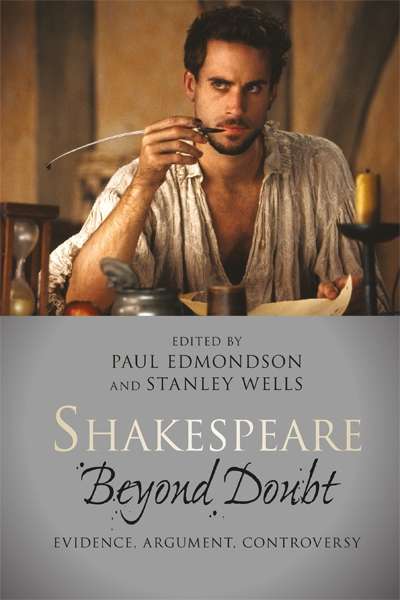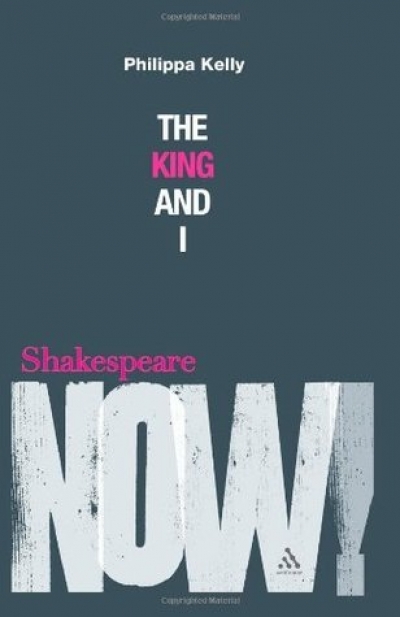William Shakespeare
Shakespeare Beyond Doubt: Evidence, argument, controversy edited by Paul Edmondson and Stanley Wells
It was not until the middle years of the nineteenth century, so far as we can tell, that anyone seriously doubted that the man from Stratford-upon-Avon called William Shakespeare had written the plays that for the past two and a half centuries had passed without question under his name. In the early 1850s, however, a private scholar from Connecticut named Delia Bacon began to develop an alternative view. She believed that the plays had been composed not by Shakespeare but by a syndicate of writers headed probably by Francis Bacon, whom she later came to think of as her distant ancestor.
... (read more)Over the past ten years, Melbourne and Sydney have experienced a revolution in the aesthetics of theatre – perhaps only the second major one since 1945. After World War II, the British helped to get us back on our cultural feet, the high point being the establishment of the Australian Elizabethan Theatre Trust in 1954. Along came a bunch of Poms or Pommie-mi ...
The humanities are currently experiencing what’s been called a ‘material turn’ that is in some ways comparable to the linguistic turn that animated the academy half a century ago. Then it was language that commanded attention, and appeared to constitute a primary ‘reality’; now the focus is on physical objects, and what they can tell us about the world in which we live. Within certain humane disciplines – art history, archaeology, museum studies – objects have always loomed large, and it is therefore not surprising that a leading figure in the present field should be the distinguished director of the British Museum, Neil MacGregor, whose brilliant study, A History of the World in 100 Objects (2011), has deservedly won both popular and scholarly acclaim.
... (read more)Why Lyrics Last: Evolution, Cognition, and Shakespeare’s Sonnets by Brian Boyd
At the dangerous time when Sir Thomas Wyatt and the earl of Surrey were around, the sonnet sprang into English from Petrarch’s Italian. A constant cuckoo, it has stayed in our linguistic tradition ever since. It is an odd verse form to have done so, regular, yet in one way asymmetrical. Moreover, this cuckoo form has long stood at the heart of what we mean by ‘lyrical’. As Wordsworth quotably if unsubtly wrote, ‘With this key Shakespeare unlocked his heart.’ Borges was to see through that romantic sense of the poet-dramatist in his mini-story ‘Everything and Nothing’, where God and the playwright eventually come face to face: that is if they have faces at all. Or hearts.
... (read more)With its opening montage of colliding images – a knife being drawn across a whetstone, television footage of massed crowds, milling soldiers in combat fatigues, politicians alighting from cars, with linking television intertitles and an underlying soundtrack of pulsating drums – Ralph Fiennes’s and John Logan’s take on Coriolanus immediately establishes its connections to contemporary events.
... (read more)Ambitious, arrogant, talented, brave, learned, truculent, and convivial: Ben Jonson was too outstanding, too odd, and too contrary to be taken as a creature of his time. Yet he had so wide-ranging a life that to write his biography is to capture, in little, a great part of his remarkable age.
... (read more)When Arnold wrote his famous sonnet, he could have been anticipating John Bell’s book, which repeatedly asks provocative questions about the man and the work that have been his life’s inspiration – and arrives at much the same conclusion as Arnold. We don’t go to Shakespeare for mere knowledge, but for insight, challenge, and enrichment, and perhaps to help us know ourselves and others better. Further, as Bell says: ‘There is no worldwide conspiracy to keep Shakespeare alive. He survives because actors want to go on performing him and audiences want to listen.’ These sentences come from his second-last page, and the rest of the book helps us to understand why.
... (read more)Literary critics used to adopt a persona claiming disinterested separation from the text being analysed. Critical theory, in particular post-colonial and gender studies, eroded this stance, showing that criticism is always self-interested, concealing or inadvertently revealing tacit assumptions stemming from the critic’s biography, class, gender, and political persuasions. As a result, it is common nowadays for critics to be more self-aware about their own value systems. In some ways, this returns us to a Romantic understanding of interpretation reflected in Hazlitt’s ‘It is we who are Hamlet’, Coleridge’s ‘I have a smack of Hamlet myself, if I may say so’, and Keats’s ‘axioms in philosophy are not axioms until they are proved on the pulses ... you will know exactly my meaning when I say, that now I shall relish Hamlet more than I ever have done’.
... (read more)Shakespeare, Sex, and Love by Stanley Wells & Shakespeare’s Freedom by Stephen Greenblatt
One of Angelina Jolie’s first starring roles was as Shakespeare’s Juliet in Love Is All There Is (1996). Or rather, she plays Gina Malacici, a Bronx schoolgirl fiercely protected from life by her wealthy, restaurant-owning Italian parents, recruited to play Juliet in the school play when the leading actress injures herself falling off the balcony. Faced ...







